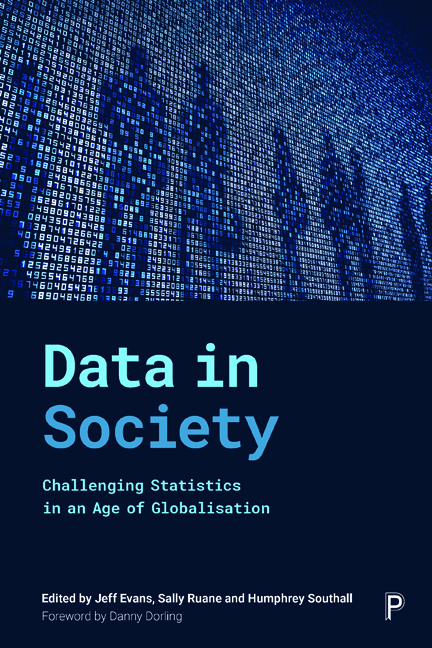Book contents
- Frontmatter
- Contents
- List of figures, tables and boxes
- Notes on contributors
- Foreword
- Preface
- General introduction
- Part I How data are changing
- Part II Counting in a globalised world
- Part III Statistics and the changing role of the state
- Part IV Economic life
- Part V Inequalities in health and wellbeing
- Part VI Advancing social progress through critical statistical literacy
- Epilogue: progressive ways ahead
- Index
29 - What a difference a dataset makes? Data journalism and/as data activism
Published online by Cambridge University Press: 30 April 2022
- Frontmatter
- Contents
- List of figures, tables and boxes
- Notes on contributors
- Foreword
- Preface
- General introduction
- Part I How data are changing
- Part II Counting in a globalised world
- Part III Statistics and the changing role of the state
- Part IV Economic life
- Part V Inequalities in health and wellbeing
- Part VI Advancing social progress through critical statistical literacy
- Epilogue: progressive ways ahead
- Index
Summary
Introduction
How and when might data journalism be viewed as a form of ‘data activism’? Data activism has been conceptualised as a set of practices which ‘interrogate the fundamental paradigm shift brought about by datafication’, including through resisting surveillance and mobilising data to denounce injustice and advocate for change (Milan and van der Velden, 2016). In this chapter we examine three ways in which data journalism can serve not just to reinforce and reify dominant regimes of datafication – or ways of rendering life into data (van Dijck, 2014) – but also to interrogate them and make space for public involvement and intervention around data infrastructures.
Researchers and practitioners contend that the boundaries between journalism and activism may become porous, particularly when it comes to emerging digital technologies and media practices (Russell, 2017). A case in point is the Panama Papers, described as both the ‘biggest leak in the history of data journalism’ (Snowden, 2016), winning a top prize at the international Data Journalism Awards, as well as the ‘coming-of-age of leaktivism’, an emerging form of ‘social protest’ (White, 2016). This is not the first time that data journalism has been associated with mega-leaks. Wikileaks was said to play a key role in obtaining broader recognition for data journalism as an emerging class of news work (Rogers, 2011, 2012). Other studies indicate the entanglements between data journalism and fields such as civic hacking and open data advocacy (Baack, 2017).
Data journalism has been broadly defined as ‘journalism done with data’ incorporating a variety of different practices (Gray et al, 2012). Researchers and practitioners alike have discussed the relationship between data journalism and the promotion of facts, scientific norms and cultures of objectivity (Bounegru, 2012; Anderson, 2015; Gray et al, 2016a). Many data journalism projects may be argued to embody a form of what Desrosieres (2001, p 346) calls ‘proof in use realism’, or an attitude that ‘“reality” is nothing more than the database to which they have access’. According to such a view, data visualisations, data stories, data interactives may treat datasets and databases as self-evident collections of facts which designate different aspects of the world.
- Type
- Chapter
- Information
- Data in SocietyChallenging Statistics in an Age of Globalisation, pp. 365 - 374Publisher: Bristol University PressPrint publication year: 2019



